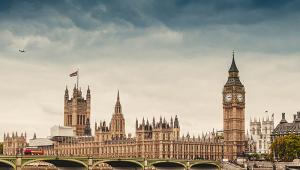Fears were raised during an APPG session on Thursday last week that the UK would not pass the EU’s ‘fair tax test’, which it will become subject to after Brexit as only countries outside the Union are assessed.
Anneliese Dodds, Labour MP and former member of the European Parliament, believed the UK could be part of the EU’s ‘blacklist’ of tax havens and questioned whether the UK would still be part of the process to tackle avoidance and evasion.
“When the UK leaves the EU, there’s a question about whether we would still be part of this process and whether the UK could end up on that blacklist – because it has been suggested by some EU nations that it should be on that tax havens blacklist,” she said.
The European Council’s criteria for countries not to be blacklisted as tax havens includes a definition of fair tax rules, which dictates countries should not offer preferential tax measures or arrangements that allow companies to move profits to avoid tax.
Dodds explained the UK has been under the ‘tax-lense’ because of its rules for multinational companies and foreign exemptions.
Alex Cobham, chief executive from campaign group Tax Justice Network, also warned the APPG the UK could end up on the EU ‘tax haven blacklist’, as did research director Jamie Whyte from the think-tank Institute of Economic Affairs.
Cobham said the government should use Brexit as an opportunity to show leadership by putting country-by-country reporting in the public domain and if the country did reduce corporate tax rates, the government would be giving up revenue.
Whyte said corporate tax should be abolished as it is “inefficient and raises no revenue”.
Although the panel did not agree on what the impact of Brexit should be on tax and opinions ranged from abolishing corporate tax to changes to VAT.
But not all participants thought Brexit would have a fiscal impact.
Oliver Letwin, Conservative MP, said that although leaving the bloc could lead to a shift in fiscal policy, the whole perspective on tax would not change as a result.
“Leaving the EU in itself will not change tax,” he said.
The chancellor, who committed in his Budget statement to ensuring that digital businesses pay their “fair share”, would not change his stance on tax simply because of Brexit happening, Letwin said.
The OECD told Reuters earlier this year that the political price of slashing corporate tax would be high.
The EU does not mandate tax on member states, but countries are expected to apply anti-avoidance measures by 1 January 2019 – a few months before the UK is set to leave the bloc.
All member states have agreed to align their VAT rules and minimum rates to avoid distorting competition across borders within the EU, but company and income tax rates are set by each country.
The UK has already committed to take part in the OECD’s initiative to combat tax avoidance and evasion, the Base Erosion and Profit Shifting (BEPS) project. It is expected these commitments should not change as a result of Brexit.
The EU has taken a more robust approach to stopping tax avoidance than the OECD and plays an important role in anti-tax avoidance measures, the seminar heard.
Margaret Hodge, who chaired the event, said it would likely be highly damaging for the UK to become a tax haven.
Following the Paradise Paper leaks, Hodge called an emergency debate in the House of Commons and said tax avoidance is “damaging public services”.
The APPG met on Monday to discuss the gig economy business model.
A leading tax lawyer told the group that the way companies operate in the gig economy means public services are missing out on “enormous” amounts of tax revenue.











